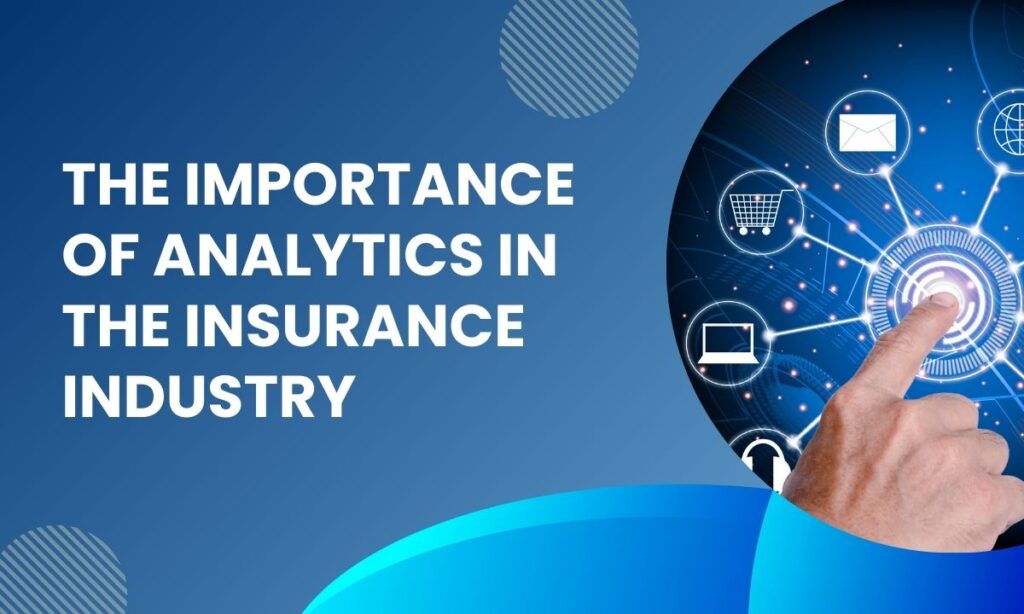Digital and analytics are reshaping the insurance industry by introducing predictive analytics and automated claims processing that streamline operations and enhance customer experiences.
Insurance companies are leveraging data lakes and advanced pattern recognition systems to better understand risks and customer behavior, while virtual assistants and chatbots provide seamless customer support around the clock.
These technological advancements, combined with sophisticated anomaly detection systems for fraud prevention, are transforming traditional insurance practices into data-driven, efficient operations that better serve both insurers and their customers.
Understanding Digital Transformation in Insurance
The insurance industry is experiencing a remarkable transformation through digital innovation and advanced analytics. Predictive analytics has become the cornerstone of modern insurance operations, enabling companies to make data-driven decisions with unprecedented accuracy.
Insurance providers are leveraging sophisticated pattern recognition systems to understand customer behavior and assess risks more effectively.
In today’s competitive landscape, insurers are implementing automated claims processing systems that streamline operations and enhance customer satisfaction.
These systems utilize advanced language understanding capabilities to process claims quickly and accurately. The integration of chatbots and virtual assistants has revolutionized customer service, providing instant responses to queries and supporting 24/7 customer engagement.
Data lakes have emerged as crucial repositories for insurance companies, storing vast amounts of structured and unstructured information. These repositories enable insurers to perform deep semantic analysis of customer interactions, policy documents, and claims data.
The implementation of robust data domains ensures proper organization and accessibility of information across different departments.
The Importance of Analytics in the Insurance Industry

Analytics has become indispensable in modern insurance operations. Insurance companies utilize automated response systems to handle routine inquiries and process basic claims, freeing up human agents to focus on more complex cases. The advancement in text analysis capabilities allows insurers to extract valuable insights from customer communications and documentation.
Natural language interaction has transformed how insurers communicate with their clients. Advanced algorithms can detect data patterns in customer behavior, enabling personalized product recommendations and risk assessment. Insurance providers now employ sophisticated anomaly detection systems to identify potential fraud and unusual claim patterns, significantly reducing losses due to fraudulent activities.
The integration of analytics has revolutionized underwriting processes, allowing for more accurate risk assessment and premium calculation. Insurance companies can now analyze vast amounts of data to identify trends and patterns that might affect policy pricing and risk management strategies.
Benefits and Challenges of Digital and Analytics Integration
The digital transformation in insurance brings numerous benefits, including improved efficiency, enhanced customer experience, and better risk management.
Automated claims processing systems have significantly reduced processing times and improved accuracy. The implementation of virtual assistants has led to better customer engagement and satisfaction.
However, challenges exist in implementing these technologies. Data security concerns, legacy system integration, and the need for skilled professionals pose significant hurdles.
Insurance companies must invest in training their workforce to handle new technologies and adapt to changing business processes.
The integration of predictive analytics and pattern recognition systems requires substantial investment in infrastructure and expertise. Companies must balance the benefits of automation with the need for human oversight and intervention in complex cases.
The Future of Insurance with Digital and Analytics

The future of insurance lies in the continued evolution of digital technologies and analytics. Text analysis and natural language interaction will become more sophisticated, enabling even more personalized customer experiences.
Insurance companies will increasingly rely on automated response systems to handle routine tasks and communications.
The integration of advanced semantic analysis tools will improve understanding of customer needs and preferences. Data patterns analysis will become more refined, leading to more accurate risk assessment and pricing models.
The evolution of data domains will enable better organization and utilization of information across insurance operations.
ALSO READ THIS BLOG: Explore the Spiritual Meaning of Tonight’s Moon and Its Power
Frequently Asked Questions
How does predictive analytics improve insurance operations?
Predictive analytics enhances risk assessment, fraud detection, and customer segmentation by analyzing historical data and identifying patterns.
What role do chatbots play in insurance?
Chatbots provide immediate customer support, handle routine queries, and guide customers through basic processes, improving service efficiency.
How does automated claims processing benefit customers?
Automated claims processing reduces processing time, minimizes errors, and provides faster claim settlements, enhancing customer satisfaction.
What are data lakes in insurance?
Data lakes store vast amounts of structured and unstructured data, enabling comprehensive analysis and insight generation for better decision-making.
How does anomaly detection help in fraud prevention?
Anomaly detection systems identify unusual patterns in claims and transactions, helping insurers prevent fraudulent activities.
Conclusion
The digital transformation in insurance, powered by analytics and automation, represents a fundamental shift in how insurance companies operate.
The integration of predictive analytics, pattern recognition, and automated claims processing has created more efficient and customer-centric insurance services.
While challenges exist, the benefits of digital transformation far outweigh the difficulties. As technology continues to evolve, insurance companies that embrace digital innovation and analytics will be better positioned to meet changing customer needs and maintain competitive advantage in the market.

David is a seasoned SEO expert with a passion for content writing, keyword research, and web development. He combines technical expertise with creative strategies to deliver exceptional digital solutions.
















